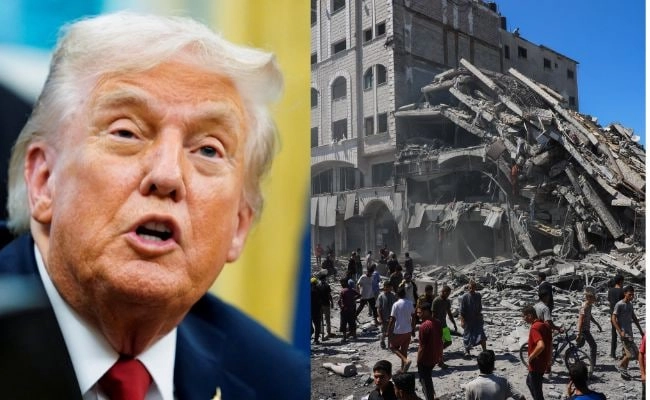In a recent statement, former President Donald Trump issued a stark warning to both Israel and Hamas regarding the ongoing conflict in Gaza. He cautioned that if tensions escalate further, the region could witness “massive bloodshed,” which would have dire consequences for all parties involved. His remarks come amid heightened violence and a precarious situation that has seen both sides entrenched in a cycle of retaliatory attacks. Trump emphasized the urgent need for diplomacy and restraint, suggesting that the current trajectory could lead to catastrophic outcomes not only for Israel and Hamas but for the entire region.
Trump’s warning reflects a broader concern about the humanitarian crisis unfolding in Gaza, where civilian casualties are rising and infrastructure is being devastated. The former president has a history of making bold statements about foreign policy, and this occasion is no different. He underscored that any military escalation could spiral out of control, potentially drawing in neighboring countries and exacerbating an already complex geopolitical landscape. His emphasis on avoiding bloodshed highlights the delicate balance that must be maintained in negotiations and conflict resolution.
Moreover, Trump’s comments resonate with a growing chorus of voices advocating for peace and stability in the Middle East. Many leaders and organizations are calling for a ceasefire and a renewed commitment to dialogue, recognizing that military solutions often lead to more violence and suffering. The international community has a role to play in facilitating discussions that can lead to a lasting resolution, as the stakes are incredibly high. The potential for massive bloodshed serves as a reminder of the urgent need for effective diplomacy and the importance of addressing the root causes of the conflict, rather than merely its symptoms.
As the situation develops, it remains to be seen how both Israel and Hamas will respond to these warnings. The call for restraint is crucial, and the international community must rally around efforts to promote peace and prevent further escalation. The complexities of the Israeli-Palestinian conflict require thoughtful and strategic approaches, and there is a shared responsibility to ensure that future generations are not left to deal with the aftermath of war. Ultimately, the hope is that through dialogue and understanding, a path toward a more peaceful coexistence can be forged, sparing countless lives from the horrors of war.




